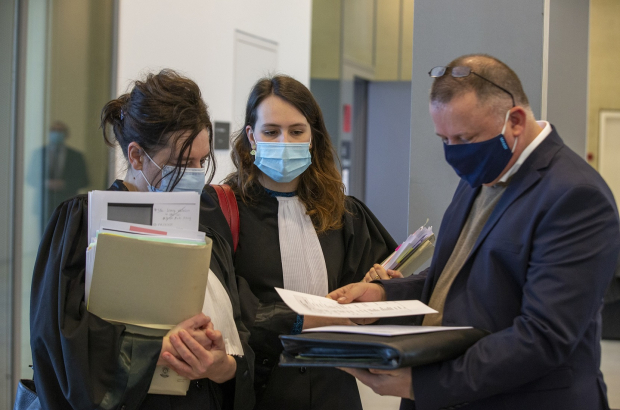- Daily & Weekly newsletters
- Buy & download The Bulletin
- Comment on our articles
Testimonies heard in criminal proceedings against Jehovah’s Witnesses
Arguments were heard this week in the legal complaint involving 16 former members of the Jehovah’s Witness community in Belgium. Members who either leave the community or are expelled are subject to an act called ‘shunning’, and the ex-members have taken the community to court for discrimination and incitement to hate.
Despite endless stories from ex-Jehovah’s Witnesses around the world about families and friends abandoning, divorcing and kicking them out of the house based on pressure from the community, this is the first time that it has ever faced criminal charges for the practice.
The equal opportunity centre Unia has joined the 16 ex-Witnesses in the complaint. The community faces a fine if the court finds it guilty of discrimination. “I hope that this can send out a signal,” said the public prosecutor. “Not so much the sanction as much as the recognition that these are unacceptable practices.”
Sexual abuse
The case follows a five-year investigation by a court magistrate in Ghent in response to complaints filed by Patrick Haeck, an ex-member. Haeck was a member of the Jehovah’s Witnesses for 35 years and was an elder – someone with considerable authority within his local congregation in Ghent. When he expressed concern about potential sexual abuse within the congregation, he was officially ‘disfellowshipped’ and shunned.
The religious community uses disfellowshipping – excommunicating members – as a weapon to keep them from questioning Witness beliefs based on interpretation of scripture, which includes refusing blood transfusions. The global community has also faced regular claims of sexual abuse of children.
Whether a member leaves or is disfellowshipped, shunning always follows. No Jehovah’s Witness, family or not, can ever speak to the former member again. If they do, they are at risk of being disfellowshipped themselves.
“From the highest levels of the organisation comes the order that no one is allowed to talk to you, not even your own family,” Haeck (pictured above, right) told Het Nieuwsblad. “They declare that this person must be avoided because they have a mental illness that is contagious.” Another former Witness testified that the congregation was told that she was under the control of the devil.
‘Social death penalty’
The prosecutor stated that they were not attacking the religion itself but the practice of shunning, which has led to depression, homelessness and suicide among former members. “It is a flagrant violation of the laws governing discrimination,” said the prosecutor yesterday in the Ghent court. “A certain group is targeted, socially isolated and psychologically damaged. The defence claims that adults are free to do whatever they want. But where is free will when your whole social fabric is unravelled? It’s the social death penalty.”
As for the defence, it claims that freedom of religion is at the heart of the case. “The European court has already ruled several times that courts may not rule on religious sources or customs,” said the lawyer representing the community. “You are therefore not allowed to pass judgment here. This is a criminal case over family disputes. That is not appropriate.”
The lawyers also added that the witness testimonies are all based on emotions and nothing concrete. “I would like to remind you of one essential fact: proof of damage is never proof of a crime.”
The court is expected to return a verdict in mid-March.
Photo ©Nicolas Maeterlinck/BELGA


















